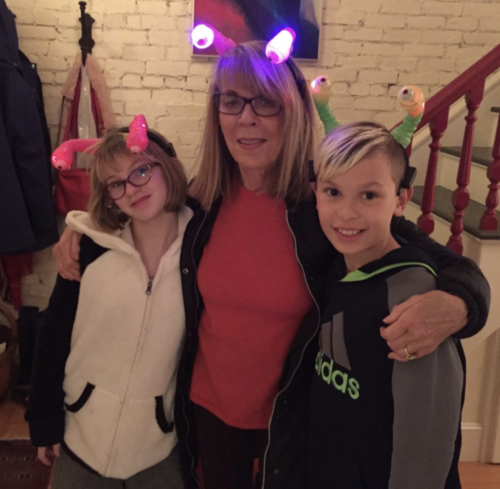GUEST POST By ANONYMOUS*
In a clear sign of the sickness engendered by the long reign of patriarchy in Western culture, grandparenting is now seen as a competitive rather than collaborative endeavor.
Despite research confirming the long-held notion that children with at least one grandmother alive are far more likely to thrive than those without a Nana, families in the U.S. are overheard saying, “These children have too many grandparents.” As if such a thing could even be possible!
Maybe it’s the wages of divorce, my bad karma for putting my children through the trauma of their parents splitting up. Even though we continued cooperating on the children’s care and providing ample opportunities for them to spend quality time with all branches of their extended family. International travel by kids and grandparents was a privilege we enjoyed. Old traditions, new traditions, and blending of holiday celebrations that honored all the religions and customs that elders in the family brought to the table.
It never occurred to me when my kids were growing up that their grandparents were in competition with each other. Did I just miss it?
I was proud of my white parents for being respectful and welcoming to the diversity my husbands brought to our family. I was excited to learn new languages, how to cook new foods, and how other cultures approached child rearing. My kids’ fathers and I went out of our way to make sure that our children got to spend ample time with all their living grandparents. That was for their benefit, incidentally; the benefit to the grandparents was the icing on the cake.

Grandparents who engage readily with their grandkids might cause another grandparent to feel competitive,
Fast forward to today when I’ve been shocked to be completely excluded from one set of grandchildren’s lives in favor of the other grands (Thank the goddess the children do have contact with my ex and his wonderful wife who helped raise my own kids).
Remarks like, “These relationships are really for the benefit of the grandparents,” emanating from my own kid have shocked me. Can that child have forgotten how important relationships with various grandparents were to them growing up?
This week I was amazed to find that, yet another grandparent feels hurt and left out because of their perception that our mutual young grandkids favor their other grandparents i.e., us more.
Shocked that we’d showed up to celebrate a holiday, this person left in a huff saying, “If she is there, I won’t get two words out of the kids.” Later the adults made up a polite lie to explain the departure that preempted promised time together. One reason I was so surprised is that my husband and I had spent what we thought was pleasant time together with this other elder on a couple of recent occasions. What has changed?
I am completely at a loss about how to understand these little tragedies other than to suspect that mental health issues are in play. I was reassured that the person who departed in anger doesn’t have a problem with me but rather has a life-long problem of feeling excluded in a wide variety of situations.
In these times of nonstop war, genocide, mass shootings, and escalating natural disasters as climate collapses, all of us who are able to need to put our selfishness aside and pull together for the children. Depending on what’s right around the corner, we may not have a second chance.



